The Lego Man: How a Passion Turned into a Mission of Love
For 15 years, Meir Cohen has been delivering Lego sets to children with cancer and more recently to wounded soldiers. A quiet tragedy in his life only fueled his resolve.
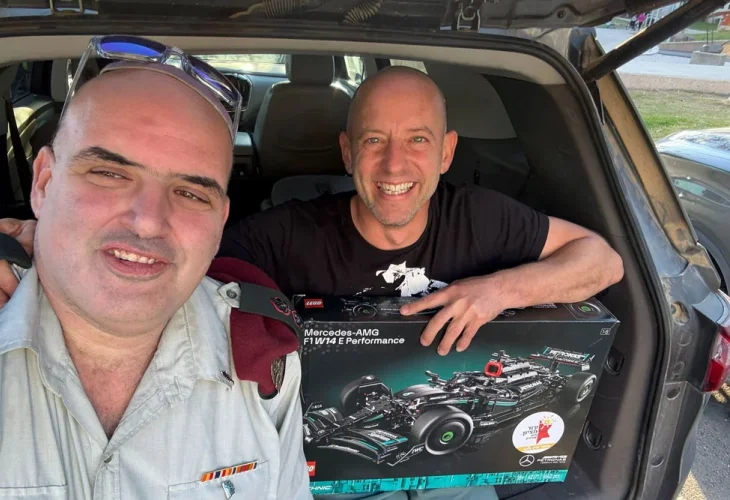 Left: Meir Cohen - The Lego Man. Right: Elisha Medan, who lost both legs in the war
Left: Meir Cohen - The Lego Man. Right: Elisha Medan, who lost both legs in the warMeir Cohen, fondly known as "The Lego Man," has always loved Legos. Since childhood, he collected the colorful bricks and figurines. At 31, his wife hinted it was getting excessive. "I was buying a lot of Lego," he recalls. "My wife pointed out there was more Lego than room in our home."
He shared his dilemma with Rabbi Eitan Eckstein, founder of "Retorno," a center for substance abuse rehabilitation, whom he was close to. "Rabbi Eckstein told me, 'Look, you and Anat have no children. Why don't you do with the Lego what I do with my work? I told Hashem that I care for His children at Retorno, and He'll care for mine.'" This touched a sensitive spot for Cohen, whose marriage of five years had yet to bring children.
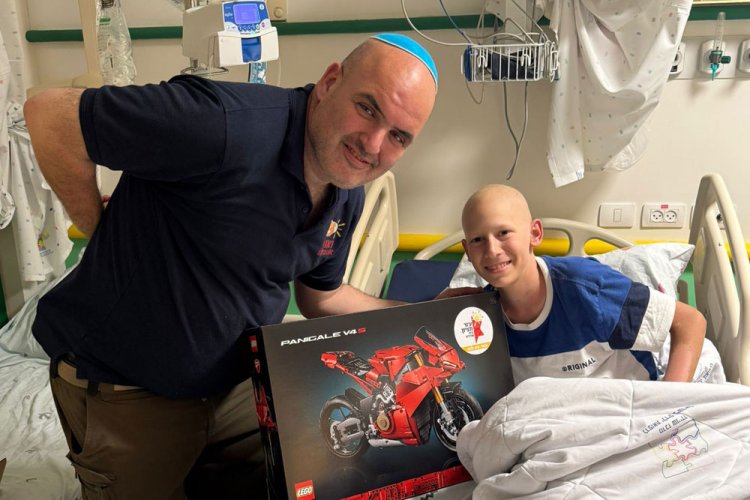
I Couldn't Disappoint
A few days later, encouraged by the rabbi’s advice, Cohen knocked on the doors of Beit Oranit, a cancer support center by the Ezer Mizion organization. To his surprise, they declined his donation, saying the only way they'd accept his Legos was if he opened a class there. "I didn't get what was exciting about a Lego class," he smiles, "but I agreed, not wanting to return home with all the Lego. I assumed it would be short-lived, just a couple of months."
The Lego class for children with cancer began, and Cohen recalls one little girl who enjoyed it immensely, asking him to come every day. "She was in a serious condition, and I fulfilled her request, visiting daily for two weeks and building with her. Two weeks later, news of her passing arrived, leaving me heartbroken," he shares.
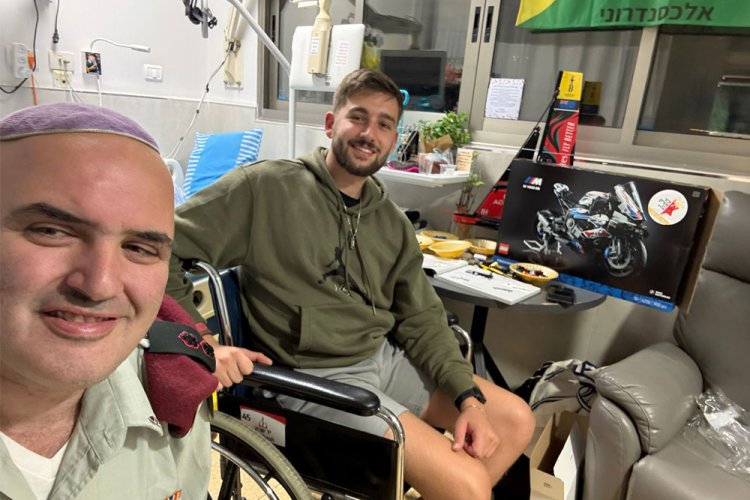
Despite the pain, Cohen acceded to her mother's request to visit during the shivah. The mother showed him the last Lego structure her daughter built, noting her wish for him to place the final block. With trembling hands, Cohen completed the task. "This realization simmered within me: if I could touch the souls of these sick children, maybe this was my calling." From then on, Cohen increased his volunteer efforts: one weekly class and hospital visits two to three times a week. A miracle followed a year later: twins on the way.
Sadly, the pregnancy did not make it, and at 20 weeks, Anat, his wife, endured a stillbirth. "On that day, wandering the hospital, a familiar young cancer patient spotted me. He believed I was there for him and eagerly sought a Lego kit. I couldn't say no. I fetched one for him from my car."
"This was yet another nudge from Hashem, guiding me to my mission of spreading Lego joy to kids. I didn't know if I would have my own children, but I felt a strong pull to invest in this. Fifteen years later, I continue this mission weekly, almost daily," Cohen shares, eyes lighting up as he adds, "and thank God, we've been blessed with four children of our own."
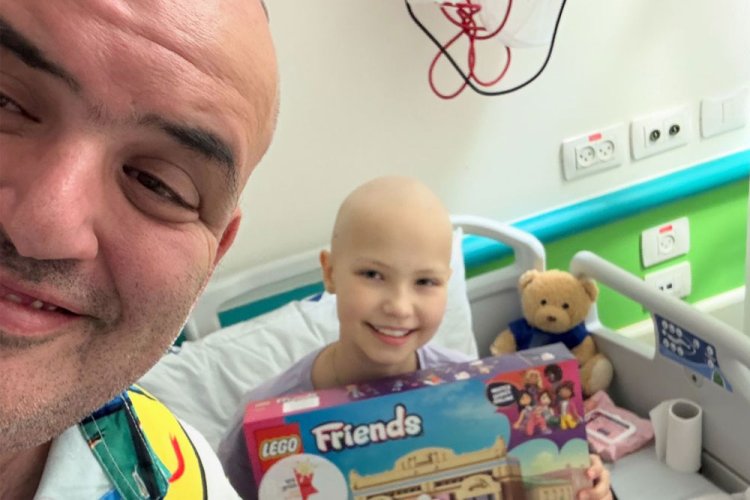
A Midnight Call
During wartime, Cohen started receiving requests from injured soldiers asking for visits. "Initially, I doubted their sincerity about wanting Legos. Even donors are sometimes skeptical about providing Lego to soldiers," he jokes.
Investigating further, Cohen's first soldier recipient, an officer wounded severely, gave him such enthusiastic feedback that Cohen realized the value of his endeavor. As requests grew, he partnered with Ezer Mizion to extend Lego kits to IDF wounded. Alongside volunteer work in oncology wards, Cohen now also frequents rehabilitation departments in hospitals like Ichilov and Tel HaShomer. To date, he’s provided hundreds of soldiers with Lego sets.
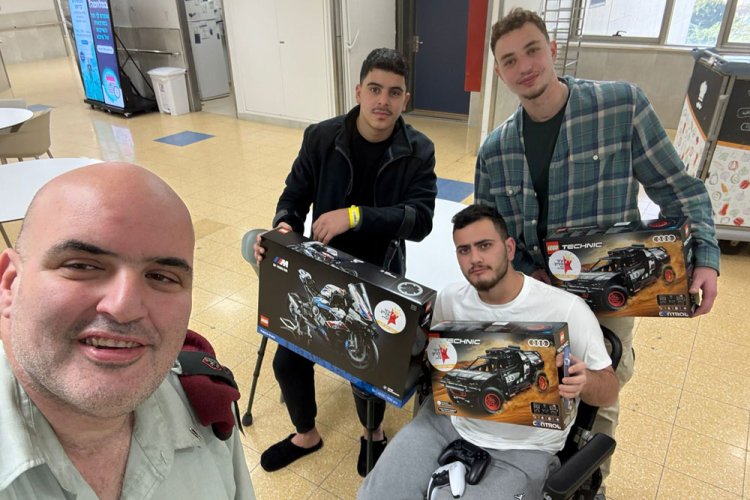
How do the soldiers react when you walk in with Lego sets? Aren’t they 'too old' for that?
"At first, they're shocked, unsure of what's happening. But after getting to know me, they can’t stop asking for more visits. Soldiers are the 'heart of my mission,'" Cohen expresses with emotion. "Initially, I thought Lego might assist in finger rehabilitation and fine motor skills. Then I realized it’s even more critical for mental recovery. Building gives peace of mind, a peace they crave."
Cohen recalls a late-night call from a soldier needing another Lego set, claiming his room was full of 'friends,' needing Lego to calm down. When Cohen questioned why he didn’t ask his 'friends' to leave, the soldier replied, "because they’re dead." This heart-wrenching encounter further affirmed to Cohen the profound relief Lego can offer to traumatized minds.
He shares another instance of a soldier swamped by racing thoughts, who spent nights assembling Lego in the bathroom to not disturb roommates.
What is it about Lego that provides such tranquility?
"Firstly, Lego offers the satisfaction of building something from scratch to completion. Additionally, playing with it transports you to realms of imagination and creativity, away from daily struggles, offering a respite from haunting memories."

Lego sets are expensive, especially in bulk. How do you fund this endeavor?
"I rely on donations to purchase the kits, with some contributions coming through Ezer Mizion and others directly to me. Donors span all walks of life—an elderly grandmother, a child collecting cans for proceeds, a nurse, even a soldier donating part of his salary. A diverse range of supportive individuals who love the country and want to contribute goodness. Meeting the pain and fulfilling this mission daily is powered by their generosity. It’s heartening to see people continue supporting this 'project,' even during challenging times like the pandemic and wartime."
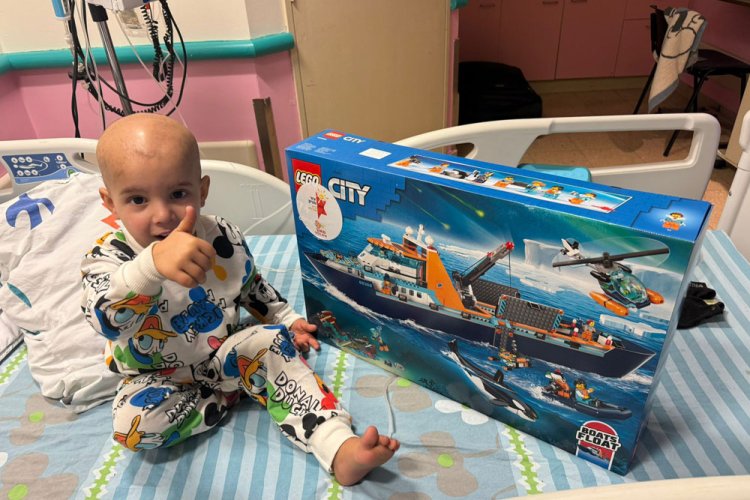
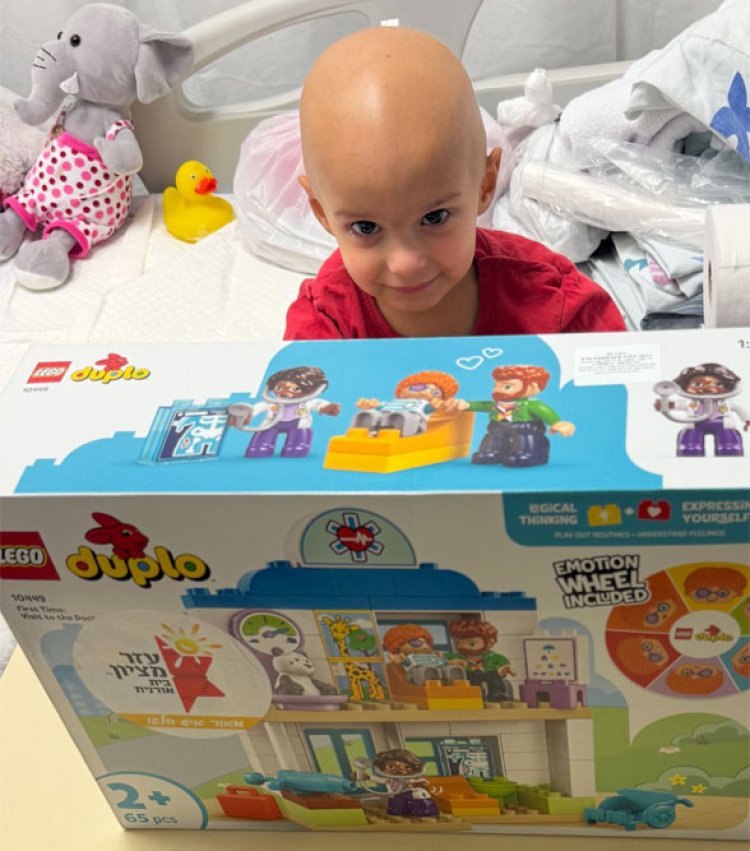
"It's Bigger Than Me"
Professionally, Cohen served in the military for 25 years, his last position being a head instructor in a division incorporating special populations into the IDF, including volunteers and those with disabilities. Since the onset of war, he has worked as a reserves officer for POW and MIA families.
How do you find the time to visit hospitals daily, balancing military duties and family life?
"It’s simple, not complex. After military hours, sometimes during breaks, whenever I could or a child needed me, I went to the hospital. Every week without fail, I make these visits, maintaining connections with these kids. Sadly, some are no longer with us, but those who are, I remain in touch with."
Recently, Cohen became a licensed nurse, following nursing studies post-military career. "I observed the profound impact nurses made, their incredible work and privilege. I sought a livelihood closest to such service. Ultimately, it’s where I found my connection."
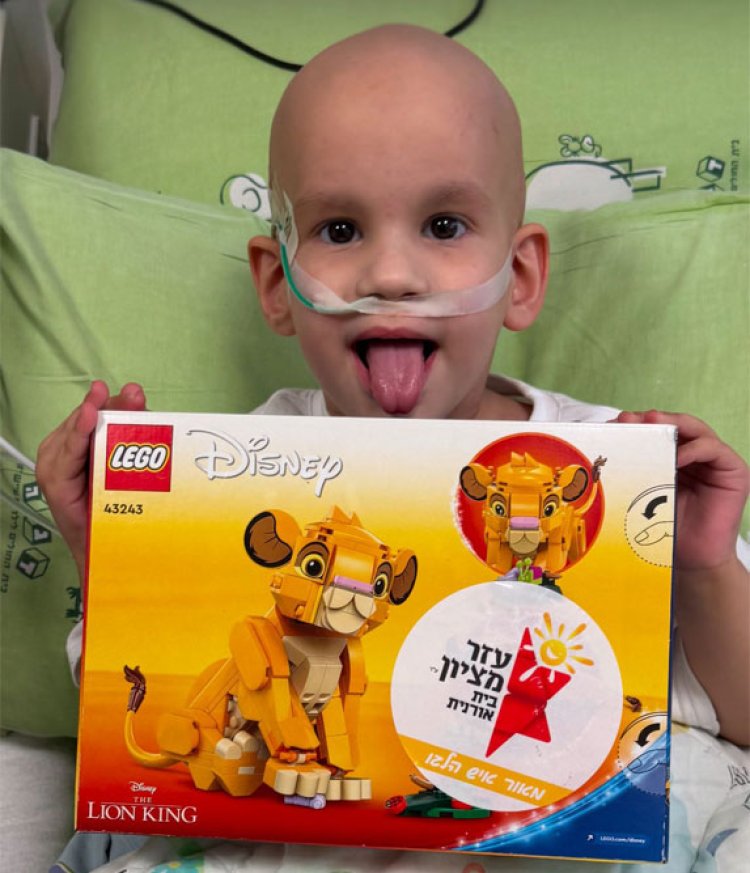
You face deeply painful human experiences daily. Where do you draw the strength to handle and embrace them?
"I recall the joy it brings to a sick child or soldier and lift myself up. When visiting bereaved parents, and a mother tells me, 'Moments with you were his perfect moments,' you simply can’t crumble after that, only grow stronger. Faith is the game-changer here; Hashem grants me the strength. It’s not me, it's bigger than me."

